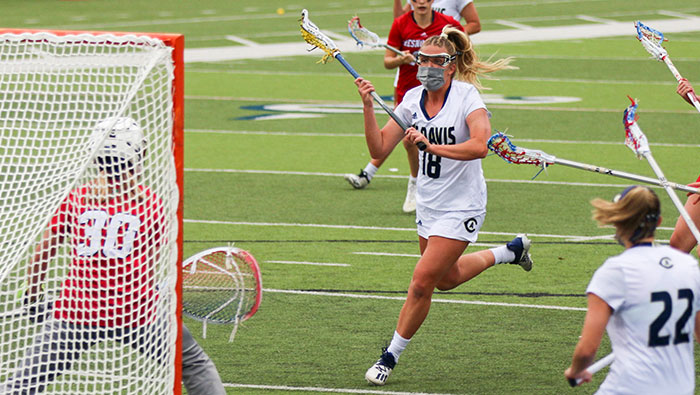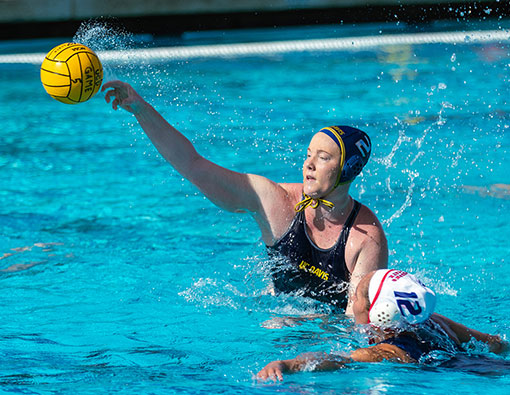
After an 11-month hiatus, student-athletes are returning to competition once again.
The pandemic brought many aspects of student life to a halt, including athletics. Alongside virtual classes, student-athletes had to adjust to being out of competition indefinitely, with regular practice schedules and tournaments up in the air due to an ever-changing situation. UC Davis sports that already returned this month include equestrian, tennis, baseball, lacrosse, softball, men’s golf and women’s water polo. For more upcoming sports, see the list below.
Maggie Fenton, associate athletics director of facilities, operations, and capital projects, said that teams must follow the state and county health guidelines, as well as campus health policies to ensure the safety of all those involved.
Her team is in charge of preparing facilities for athletes and coaches to safely enter, with proper sanitizing stations set up for those exercising and disinfectants available for cleaning workout or sports equipment. Fans and HVAC systems have been adjusted to ensure as much outdoor air comes into the facilities as possible. Everyone is required to complete daily symptom surveys, including visiting team members. Separate restrooms are made available for the home team and the visiting team so members don’t have to cross paths. Locker room and shower usages are prohibited.
When athletes play, no spectators are allowed at sporting events, as per Yolo County policy.

Student-athletes are required to be tested for COVID-19 three times per week and saliva-based testing readily available on campus.
NCAA guidelines dictate how many times per week athletes must be tested, depending on the risk level of their sport (basketball is considered high-risk while tennis is low-risk, for instance).
If any athletes would like to opt out of playing this year for health-related reasons, they have full permission to do so with no risk of losing their scholarships nor their place on the team.
Josh Flushman, senior associate athletics director in sports administration, said he recognized the challenge this past year has been for student-athletes. “I can understand the mental peaks and valleys that they're going through. Our role here is to help them as much as possible. If they want to play, we want to help them get there,” said Flushman.
However, establishing a safe return to sports for everyone involved has not been easy. Important information on policies and adherence to protocol that travels down the chain of command, from athletics directors to coaches and players and everyone in-between, can sometimes be lost in translation, Fenton shared.
“It's not anyone's fault. The amount of detail or the amount of change that happens on an hourly basis is really hard to keep up with,” said Fenton. In spite of obstacles, the amount of collaboration and effort from everyone involved has been inspiring, she said. “I don't think words can express how grateful I am for having staff that are willing to step up,” said Flushman.
More returning sports:
Men’s and women’s track and field — Feb. 26
Beach volleyball — Feb. 27
Women’s golf — March 1
Football — March 6 (will be televised locally)
Field hockey — March 7